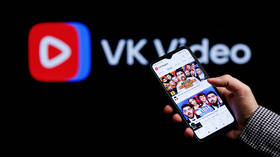Russia today - 5/30/2025 2:43:44 PM - GMT (+2 )

The platform must reinstate blocked Russian media, pay fines and set up a legal entity in the country, Anton Nemkin has said
YouTube can only resume full operations in Russia if it fulfills a series of legal and technical conditions, State Duma member Anton Nemkin has told RIA Novosti.
Although not officially blocked, YouTube has been largely inaccessible in Russia since last year, when its loading speed began slow dramatically. Authorities blamed a lack of server maintenance following Google’s exit from the country in 2022. Later, officials partially confirmed the slowdown was also linked to YouTube’s failure to comply with Russian law.
Nemkin said on Friday that YouTube needed to deal with abandoned equipment, settle outstanding fines, and establish a legal entity in Russia before the platform’s functionality in the country can be fully restored.
The MP also called on YouTube to restore access to blocked Russian accounts. The platform has removed some media outlets, including RT and Sputnik, and has repeatedly taken down channels run by Russian bloggers, journalists, and artists. Moscow says the removals target content that reflects views diverging from those prevalent in the West.
“Without these steps, it’s impossible to speak of any ‘easing’ – this is not about politics, but legal compliance,” Nemkin said.
In March, it was reported that Russian-registered Google LLC owed national broadcasters $1.16 quintillion in fines for failing to restore their YouTube channels. In January, RBK said the international Google corporation owed more than $22 undecillion. The Kremlin described the figures as symbolic, intended to pressure the company into complying with Russian law.
Nemkin said dialogue with global platforms such as YouTube could only happen on Russia’s terms. “This is not about bans for the sake of bans, but about equal rights,” he said, adding that companies must comply with local laws, pay taxes, and store user data in Russia.
The lawmaker called for an end to the era of unchecked power for major IT companies. If foreign platforms are restored, “there is no going back to the old dependence.”
“We’ve learned a harsh but valuable lesson: we cannot build our digital future on platforms that can flip the switch at any moment,” he said, adding that YouTube should no longer serve as the foundation of Russia’s internet landscape.
Nemkin pointed out that Russia is now developing its own infrastructure – search engines, cloud storage, video hosting, and ad systems – in support of its “digital sovereignty.”
read more




